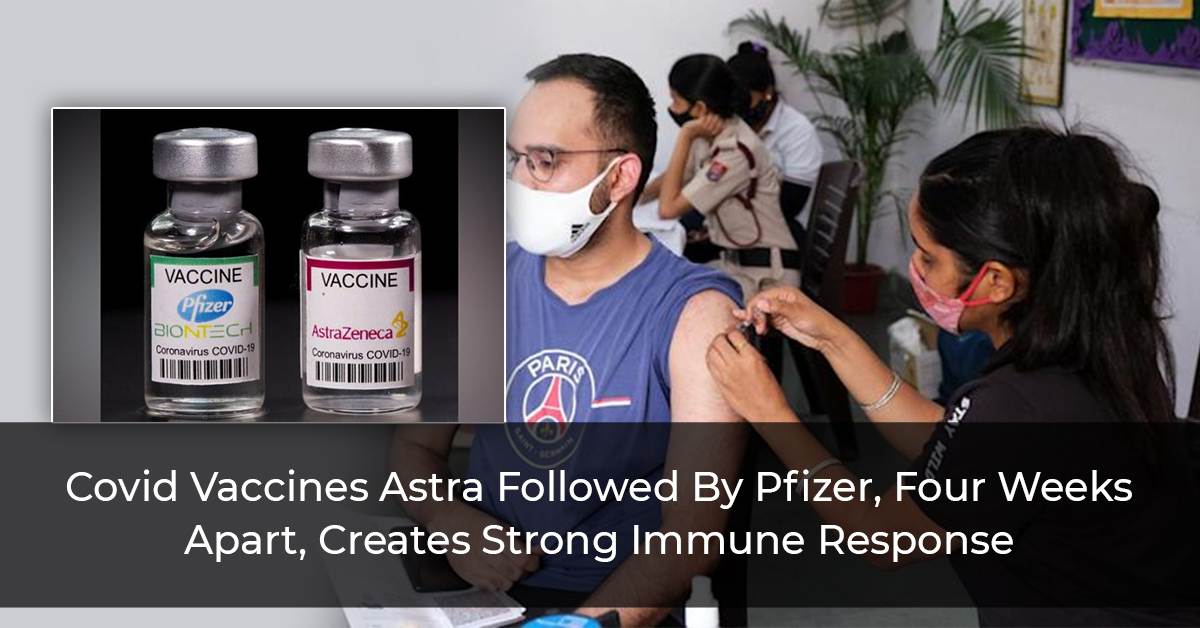Highlights:
- According to a UK study, mixing doses of Covid-19 vaccinations from Pfizer Inc. and AstraZeneca Plc results in a significant immune response.
- All the combinations of Covid vaccines were effective in stimulating the immune system.
- Experts believe that this knowledge could help with vaccination rollout flexible.
According to results from a University of Oxford study, mixing doses of Covid-19 vaccines from Pfizer Inc. and AstraZeneca Plc produces a significant immune response, a finding that could allow for greater flexibility in the utilisation of limited supplies.
When administered four weeks apart, a mixed schedule of the Pfizer shot followed by the Astra vaccination, and vice versa, resulted in high concentrations of antibodies against Covid-19, according to researchers who published their findings in the Lancet medical journal on Monday.
As many low- and middle-income countries strive to find out how to deal with vaccine scarcity, doctors and public health officials have been examining various ways to extend vaccination supplies, such as postponing the period between first and second doses. The ability to mix doses could aid countries with a variety of vaccine supplies in assisting one another.
Also Read: Twitter Removes Incorrect Map Displaying Jammu & Kashmir, Ladakh Outside India
The order in which the immunizations were administered had an impact on the outcomes. Astra followed by Pfizer produced more immunological antibodies and T-cells than Pfizer followed by Astra.
According to the study, both combined vaccination schedules elicited more antibodies than two doses of Astra. Astra had the best T-cell response, followed by Pfizer, and two doses of Pfizer had the best antibody response.
Matthew Snape, an Oxford professor who headed the trial, said, “This calls for flexibility in the use of these schedules, when local circumstances require it. This gives everyone a choice.”
In the UK, shots of AstraZeneca’s vaccine are currently spaced out by 12 weeks, increasing vaccination accessible while also appearing to improve vaccine effectiveness. In addition, according to an Oxford study released Monday, gapping injections by as much as ten months enhanced responses even more. Snape said at the briefing that results from a 12-week test of the mixed doses would be released “within the next month or two.”
The vaccines were only tested against the variant first found in Wuhan in the trial, which included 830 participants aged 50 and up. Additional coronavirus strain testing could help determine which vaccinations and combinations to utilise in potential winter booster doses, according to Snape. Combining vaccinations from Moderna Inc. and Novavax Inc. will be the focus of future research from the programme.
Early findings from the study revealed last month that mixing Pfizer and Astra dosages enhanced side effects like fatigue and headaches. However, according to the findings of the Lancet study, these effects were only temporary.


